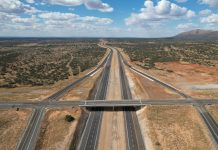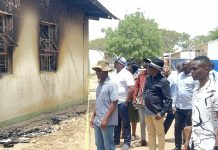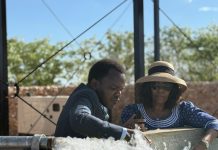Africa-Press – Namibia. A senior lecturer at the International University of Management (IUM) says developmental projects cannot offer sustainable solutions to local problems without using local and indigenous knowledge in implementing them.
IUM faculty of environmental management and sustainable sciences dean Sion Iileka says indigenous knowledge is considered the basis of self-sufficiency and self-determination because people are familiar with indigenous practices. He made these remarks at the two-day Youth Climate Change Conference Namibia 2025 which was held at Ondangwa in the Oshana region last week.
Iileka explained that indigenous knowledge is important because it has developed innovative techniques and technologies tailored to local environments and challenges. He said indigenous practices ensure equity and social justice, community well-being and a sense of identity, adding that indigenous knowledge is a unique traditional system developed by indigenous people over generations and rooted in their cultural practices.
“It is a systematic body of knowledge acquired by local people through accumulation of information, experiences and intensive understanding of their environment in a given society,” he said.
Indigenous knowledge, he said, is transmitted through stories. It is based on long-term observations and emphasises collective responsibilities. This knowledge can be used in ecological protection or restorations as well in adapting to the negative impacts of climate change.
“It integrates ecological, social and spiritual dimensions as it is rich in beliefs and taboos guiding environmental interactions and emphasises respect for nature and sustainable practices,” said Iileka.
He said some of the challenges facing indigenous knowledge systems at the moment include that it is not well documented, its integration with modern science, its limited influence in formal decision-making, ageing of people who have wealth of traditional knowledge, urbanisation, climate change and christianity.
Iileka said some specific indigenous knowledge practices related to climate change can be seen through animal behaviours, termite hills in flood-plains, direction of wind and plant behaviours.
According to Iileka, to ensure that traditional knowledge is preserved so that it can be relevant to our contemporary challenges, it needs to be well documented and awareness of its importance needs to be created and incorporated into basic and higher education curriculum. He adds that it also needs to be digitised.
The aim of the conference was to create awareness on climate change among young people in Namibia for them to engage in finding tangible solutions and innovations in addressing climate change in the country.
For More News And Analysis About Namibia Follow Africa-Press






